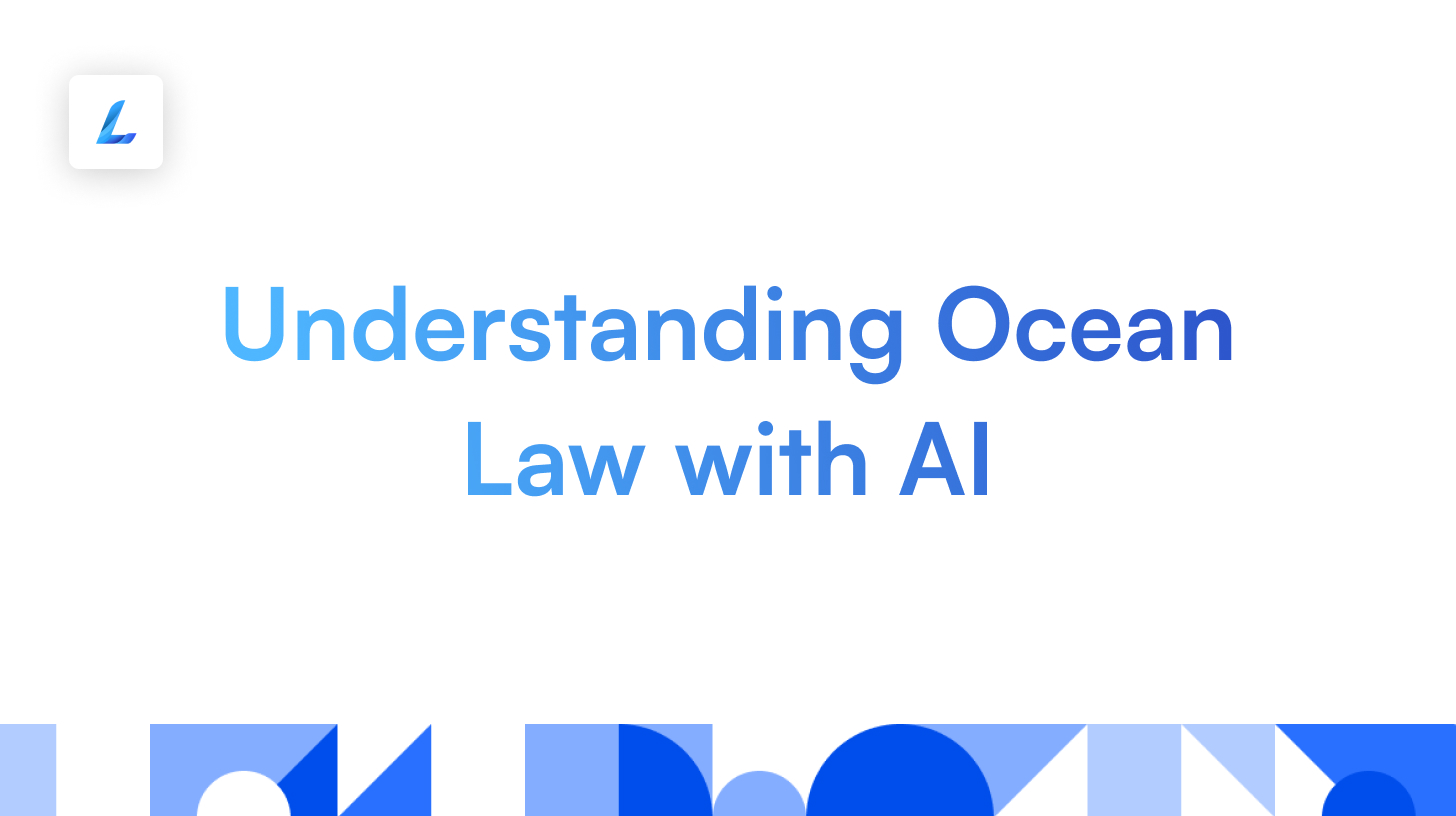As the Earth’s largest and most mysterious frontier, the world’s oceans have always been subject to intricate laws and regulations. From defining maritime boundaries to conserving marine biodiversity, ocean laws play a pivotal role in preserving our planet’s most critical ecosystems. In this article we guide you on understanding ocean laws with AI.
Enter Artificial Intelligence (AI), a transformative force poised to help with the understanding and application of ocean laws. This blog embarks on a voyage through the depths of AI’s potential impact on the legal domain surrounding our oceans.
Basics and Definitions
The realm of ocean laws, commonly referred to as Maritime Law, encompasses a vast array of legal principles and regulations governing activities at sea. Some fundamental terms include:
Territorial Waters: The area extending up to 12 nautical miles from a coastal state’s baseline, where that state exercises sovereignty.
Exclusive Economic Zone (EEZ): A zone extending up to 200 nautical miles from a coastal state’s baseline, granting that state special rights to explore and manage natural resources.
High Seas: Areas of the ocean beyond any state’s jurisdiction, considered international waters.
UNCLOS: The United Nations Convention on the Law of the Sea, a comprehensive treaty governing the use and conservation of the world’s oceans.
The oceans are an irreplaceable part of our planet, covering over 70% of its surface and playing a fundamental role in regulating the Earth’s climate and supporting an incredibly diverse array of life. Beyond their ecological significance, oceans are essential for global trade, transportation, and commerce. They provide food, livelihoods, and resources to millions of people around the world. However, the delicate balance of our oceans is under constant threat from overfishing, pollution, habitat destruction, and climate change.
Maritime Law
To protect these invaluable resources, a complex web of ocean laws and regulations has been developed at the international, regional, and national levels. These laws govern everything from shipping and navigation to marine conservation and fisheries management. Ocean laws provide the legal framework necessary to ensure that our oceans are used sustainably and responsibly. It is important to safeguard both their ecological integrity and the livelihoods of coastal communities.
The complexity and sheer scale of ocean laws can be overwhelming for legal professionals and policymakers. Understanding and interpreting these laws correctly is paramount to avoiding legal disputes, environmental damage, and economic losses. This is where AI technology steps in to assist. By leveraging AI-powered tools for legal analysis and prediction, we can navigate the intricate web of ocean laws more efficiently and effectively.
Using AI to aid with Maritime Law
AI can sift through vast volumes of legal documents, treaties, and case law to extract relevant information and offer insights into the interpretation of complex legal principles. It can assist in contract analysis, ensuring that agreements comply with international and domestic regulations. AI’s predictive capabilities can also help legal professionals anticipate the outcomes of legal disputes, allowing for informed decision-making and risk mitigation.
In essence, AI in the realm of ocean law provides a powerful ally in our efforts to protect and preserve our oceans. It helps bridge the gap between the intricacies of legal frameworks and the practical steps needed to ensure compliance and sustainability. By harnessing the capabilities of AI, we can better understand how to navigate the seas of legality and stay on the safe side of ocean laws, ultimately contributing to the health and longevity of our planet’s most vital ecosystems.
Relevant Cases in Ocean Law
Historically, maritime disputes have often been contentious and challenging to resolve. Take, for instance, the South China Sea dispute involving multiple nations with competing territorial claims. The complex legal questions surrounding this dispute have led to prolonged tensions and conflicts that could have potentially been mitigated with AI-driven legal analysis.
Furthermore another notable case is the Exxon Valdez oil spill in 1989, where an oil tanker accident off the coast of Alaska resulted in one of the most devastating environmental disasters in history. The legal aftermath was protracted, with numerous lawsuits and negotiations. AI tools could have expedited the legal processes. Rapidly analysing vast amounts of documents and data, aiding in more efficient settlements.
AI’s integration into the field of ocean law promises to streamline such disputes, enhance the understanding of complex legal issues, and ultimately contribute to more effective and efficient legal resolutions.
AI’s Integration into the Legal Field
In the realm of ocean laws, AI is not merely an abstract concept but a tangible force that is reshaping the way legal professionals approach maritime disputes and environmental conservation.
AI tools are being deployed for various purposes:
- Legal Research: AI can analyze vast legal databases to extract relevant precedents making legal research more efficient.
- Contract Analysis: AI can review and compare maritime agreements, ensuring compliance with international and domestic laws.
- Environmental Monitoring: AI-driven systems can process satellite data to monitor activities like illegal fishing and pollution.
- Predictive Analytics: AI models can predict the outcomes of maritime disputes.
Thus, these advancements not only expedite legal processes but also enhance the accuracy and comprehensiveness of legal analysis in ocean-related cases.
Introduction to Legaliser
Introducing Legaliser – a groundbreaking solution tailored to address the intricacies of ocean law contracts. Whether you’re involved in defining maritime boundaries or conserving marine ecosystems, this tool offers unmatched precision and efficiency. With its unique features, it ensures that every contract aligns seamlessly with international and domestic maritime regulations.
Furthermore, we’re excited to announce that the our Legal AI tool is available for a limited-time free trial. This presents an exceptional opportunity for legal professionals involved in ocean law. They can experience firsthand the transformative capabilities of AI in contract analysis. Enhance your efficiency, accuracy, and compliance in the world of ocean law contracts with Legaliser AI.
Conclusion
The oceans have always held immense ecological, economic, and geopolitical significance. With the introduction of AI into the field of ocean law, we are witnessing a profound shift in how we understand and apply legal principles to these vast waters. AI’s ability to expedite legal research, analyse complex contracts, and predict legal outcomes is reshaping the landscape of ocean law.
As we navigate the complex legal waters surrounding our oceans, tools like Legaliser offer an invaluable edge. By streamlining legal processes, enhancing precision, and ensuring compliance, AI is enabling us to protect and preserve our oceans more effectively.
The future of ocean law lies at the intersection of legal expertise and AI innovation. It’s about forging a future where our oceans are governed with unprecedented efficiency and wisdom.






